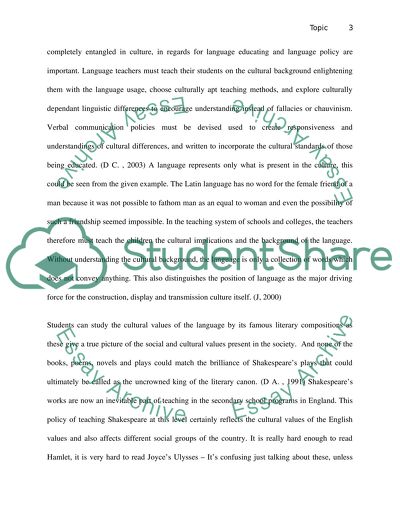Cite this document
(How Teaching of Shakespeare at School Reflects Cultural Values Term Paper, n.d.)
How Teaching of Shakespeare at School Reflects Cultural Values Term Paper. Retrieved from https://studentshare.org/education/1555406-it-is-almost-impossible-to-conceive-a-secondary-school-programme-of-teaching-english-at-any-rate-in-england-that-ignores-the-study-of-shakespeare-explain-how-this-policy-reflects-cultural-values-and-how-it-affects-different-social-groups
How Teaching of Shakespeare at School Reflects Cultural Values Term Paper. Retrieved from https://studentshare.org/education/1555406-it-is-almost-impossible-to-conceive-a-secondary-school-programme-of-teaching-english-at-any-rate-in-england-that-ignores-the-study-of-shakespeare-explain-how-this-policy-reflects-cultural-values-and-how-it-affects-different-social-groups
(How Teaching of Shakespeare at School Reflects Cultural Values Term Paper)
How Teaching of Shakespeare at School Reflects Cultural Values Term Paper. https://studentshare.org/education/1555406-it-is-almost-impossible-to-conceive-a-secondary-school-programme-of-teaching-english-at-any-rate-in-england-that-ignores-the-study-of-shakespeare-explain-how-this-policy-reflects-cultural-values-and-how-it-affects-different-social-groups.
How Teaching of Shakespeare at School Reflects Cultural Values Term Paper. https://studentshare.org/education/1555406-it-is-almost-impossible-to-conceive-a-secondary-school-programme-of-teaching-english-at-any-rate-in-england-that-ignores-the-study-of-shakespeare-explain-how-this-policy-reflects-cultural-values-and-how-it-affects-different-social-groups.
“How Teaching of Shakespeare at School Reflects Cultural Values Term Paper”. https://studentshare.org/education/1555406-it-is-almost-impossible-to-conceive-a-secondary-school-programme-of-teaching-english-at-any-rate-in-england-that-ignores-the-study-of-shakespeare-explain-how-this-policy-reflects-cultural-values-and-how-it-affects-different-social-groups.


